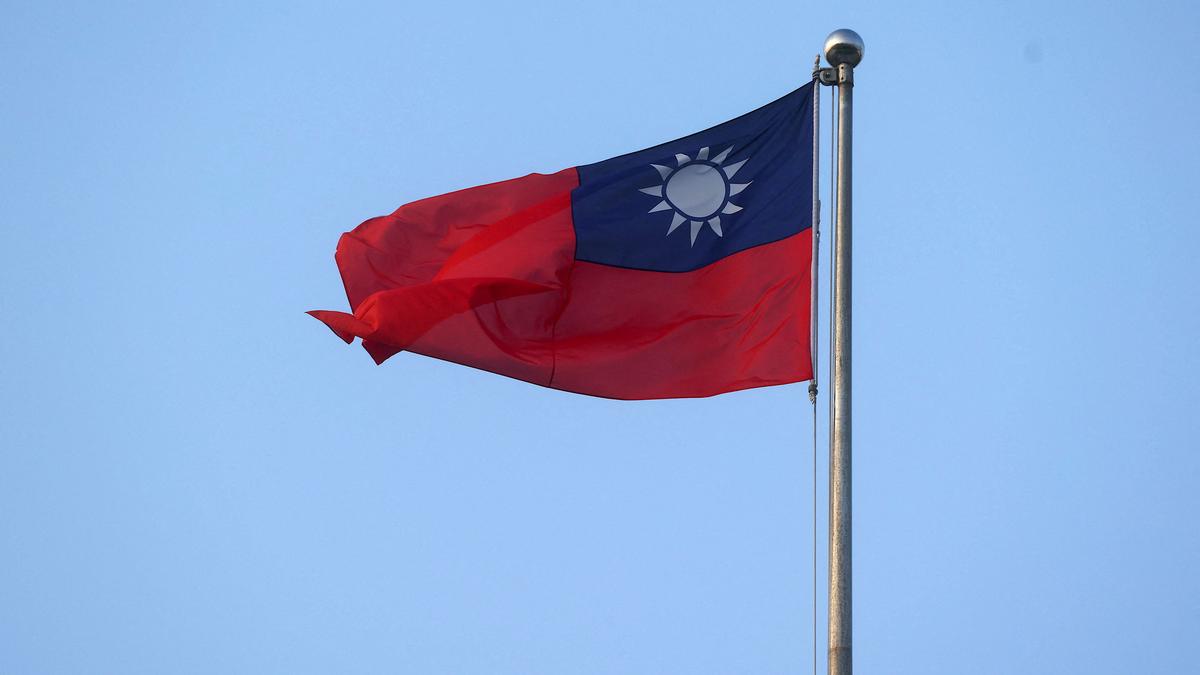Taiwan's precarious position between the US and China has recently become a global flashpoint. The announcement of a $571 million military aid package to Taiwan by the US has ignited furious condemnation from China, who consider Taiwan their own territory and this act as a grave violation of their sovereignty. This article delves into the complexities of this situation, exploring the "one China" policy, Taiwan's democratic ideals, and the potential consequences of escalating tensions in the region. Get ready for an explosive journey into the heart of geopolitical tensions. ## Understanding the "One China" Principle: What's at Stake? The "one China" principle is the bedrock of China's stance on Taiwan. This core tenet asserts that Taiwan is an inalienable part of China, and any actions undermining this principle will face decisive countermeasures. While many nations acknowledge this principle diplomatically, the reality on the ground is significantly more complex. Taiwan has its own democratically elected government, distinct from mainland China, a fact that complicates international relations and intensifies the already strained relationships between nations. The recent US decision to provide military aid further challenges this principle, heightening the existing political turmoil in East Asia and the broader global stage. ### The implications of US support for Taiwan The provision of military aid by the US to Taiwan underscores its commitment to supporting self-governed Taiwan against growing Chinese aggression. However, this support has made the conflict more volatile, especially after China’s condemnation and retaliatory threat of taking "all necessary measures." China’s hard-line stance and implicit threat of military action demonstrates just how deeply Taiwan's status cuts to the heart of China’s national identity and politics. The United States' support for Taiwan's defense capabilities against China is not just a matter of providing military resources; it's about upholding a critical pillar of democracy in Asia and a key US ally against authoritarian power. This approach has global significance, as many are closely watching this strategic and pivotal standoff, and assessing the outcome that will impact global alliances, global trade, and more. ## Navigating a Geopolitical Minefield: Balancing Acts and Risks This heightened tension surrounding Taiwan presents an exceedingly complex diplomatic challenge to the rest of the world. Major powers must navigate a delicate balancing act to maintain stability while upholding their interests and commitments. As seen from the strongly worded statement from China's Foreign Ministry, one wrong move could unleash unforeseen consequences that could trigger widespread military conflict with far-reaching global implications. The entire world economy, including international trade, shipping and banking are heavily reliant upon the East and South China Seas. Military aggression in the region would cripple global financial markets and endanger many nations. Any actions must factor in this dynamic environment to prevent serious negative consequences for countries and industries across the planet. ### The economic and strategic ramifications of the Taiwan conflict. The economic stakes in the Taiwan Strait conflict are enormous. Taiwan plays a crucial role in global technology manufacturing, and any disruption to its operations could negatively impact global industries reliant on semiconductor chips. Businesses worldwide have a considerable financial and economic stake in peaceful resolution to this standoff. Beyond the economic risks, the geopolitical ramifications are just as daunting. The Taiwan Strait's status profoundly affects relations between the United States, China, and its allies across Asia. Any destabilizing actions carry risks of increased military conflict and potential broader consequences across international trade, alliances and military strategy. ## What the Future Holds: Predictions and Possible Scenarios The situation remains fraught with uncertainty, with many observers holding diverging views on the likelihood of military conflict in the region. Experts propose various scenarios from an enduring uneasy peace to open military conflict that may escalate into broader global war. Several critical factors will dictate the region's ultimate outcome. ### Predictions and possible outcomes of rising tensions in the Taiwan Strait. A crucial question is how both sides respond to continued actions that contradict their interests and core goals. Further, regional and international reactions to any acts of conflict or escalation by either China or the US will play an essential role in determining outcomes. The intensity and speed of escalation or de-escalation hinges upon these interactions. Continued cooperation between the US and China, though improbable, presents the best hope for reducing tensions. Maintaining the existing international support for Taiwan in a less confrontational fashion presents another possible route to peace, though it does remain a highly volatile geopolitical situation. ## Take Away Points The Taiwan Strait issue underscores a significant geopolitical conflict marked by heightened risks and complexities. It challenges our comprehension of international relations and the nature of power. Understanding the "One China" principle, the ramifications of foreign involvement and potential future scenarios is key to preventing conflict in the region. This situation highlights the need for continued diplomatic engagement to maintain regional stability and the global balance of power. The strategic and economic implications for many countries worldwide must be carefully considered in the context of this dynamic scenario.
22 December 2024

Taiwan Strait Conflict: A Geopolitical Tightrope Walk








